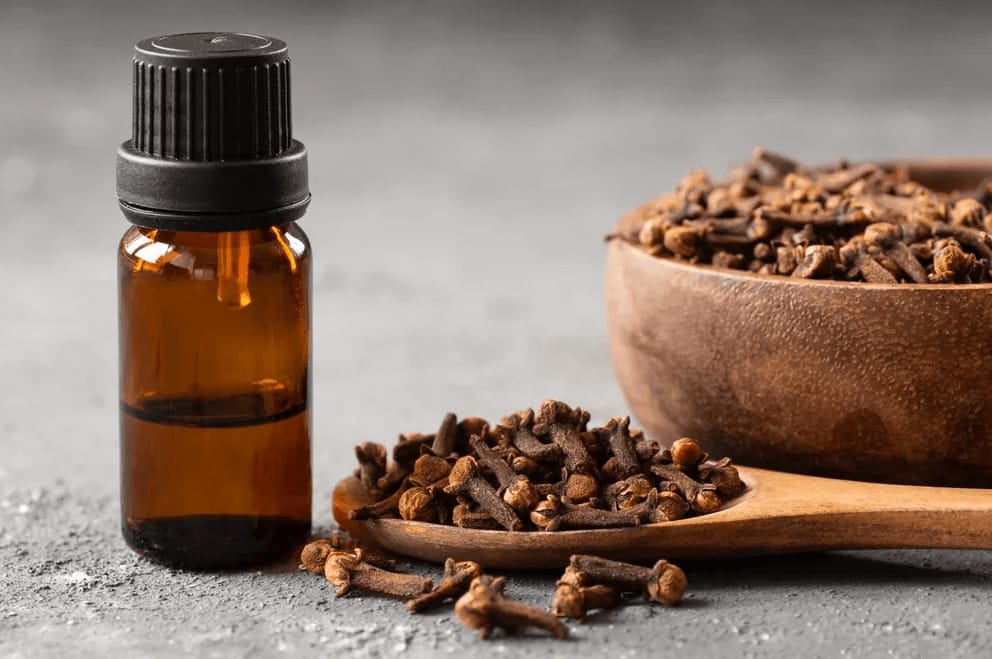- Thriving Guide
- Posts
- Can Clove Oil Help Your Hair Grow?
Can Clove Oil Help Your Hair Grow?
Why this aromatic spice is trending as a natural remedy for healthier, fuller hair.

Cloves, the aromatic dried flower buds of the clove tree, have been used in traditional medicine for centuries. Today, they’re gaining attention as a natural solution for hair growth and scalp health. While scientific research is still emerging, the compounds in clove oil suggest promising benefits for promoting stronger, thicker hair.
Why Clove Oil Might Help Hair Growth
Cloves are rich in antioxidant, antimicrobial, and anti-inflammatory properties that may create a healthier scalp environment essential for hair growth. Here’s how the key compounds in cloves may work:
Antioxidants like eugenol help neutralize free radicals, which can cause oxidative stress linked to hair loss, premature graying, and thinning.
Anti-inflammatory compounds such as gallic acid may reduce scalp inflammation, which is often associated with dandruff, psoriasis, and seborrheic dermatitis.
Antimicrobial activity helps fight bacteria and fungi, including scalp infections that may block hair follicles and hinder growth.
Cloves also contain nutrients like beta-carotene, vitamin E, and omega-3 fatty acids, all of which support scalp nourishment, hydration, and hair strength.
Popular Ways to Use Cloves for Hair
While there’s no single “best” way to apply clove oil, these DIY methods are commonly used:
Clove-Infused Oil: Combine ½ teaspoon of crushed cloves with 4 ounces of a carrier oil (like coconut or jojoba). Let it infuse for a week, strain, and use as a scalp massage oil. Leave on for 20 minutes before shampooing.
Clove Water Rinse: Boil 2 cups of water, add 2 tablespoons of whole cloves, simmer for 10 minutes, and let cool. Use as a final rinse after shampooing or spritz onto hair during the week for added shine.
Clove Hair Mask: Mix 2 ounces of clove water with 2 tablespoons yogurt, 1 tablespoon honey, and 1 egg. Apply to damp hair and leave for 20–30 minutes before rinsing.
Important Safety Tips
Clove essential oil is very strong and should never be applied directly to the scalp without dilution. Always:
Do a patch test to rule out allergic reactions.
Use a carrier oil to dilute clove essential oil.
Avoid contact with eyes and discontinue use if irritation, redness, or itching occurs.
Potential Side Effects
Applying clove oil in high concentrations or too frequently can cause scalp dryness, burning, or allergic reactions. In rare cases, inhalation or excessive use may lead to respiratory irritation or discomfort.
Alternatives That Support Hair Health
If cloves aren’t for you, similar natural remedies may help:
Rosemary oil: Shown in some studies to stimulate hair follicles.
Green tea rinses: Rich in antioxidants to reduce scalp inflammation.
Carrier oil massages: Coconut, almond, or jojoba oil can improve blood flow to the scalp.
Healthy hair also starts from within. Eating a balanced diet rich in protein, omega-3 fatty acids, zinc, vitamin D, and B vitamins is essential. Stress management and a consistent scalp care routine also play major roles in maintaining strong, healthy strands.
Bottom Line
While clove oil isn’t a guaranteed solution for hair growth, its antioxidant and antimicrobial properties suggest it may help create a healthier scalp environment. When used correctly and safely, it can be a beneficial addition to your hair care routine.
If you found this article helpful, share it or subscribe to our newsletter for more natural beauty tips and insights.